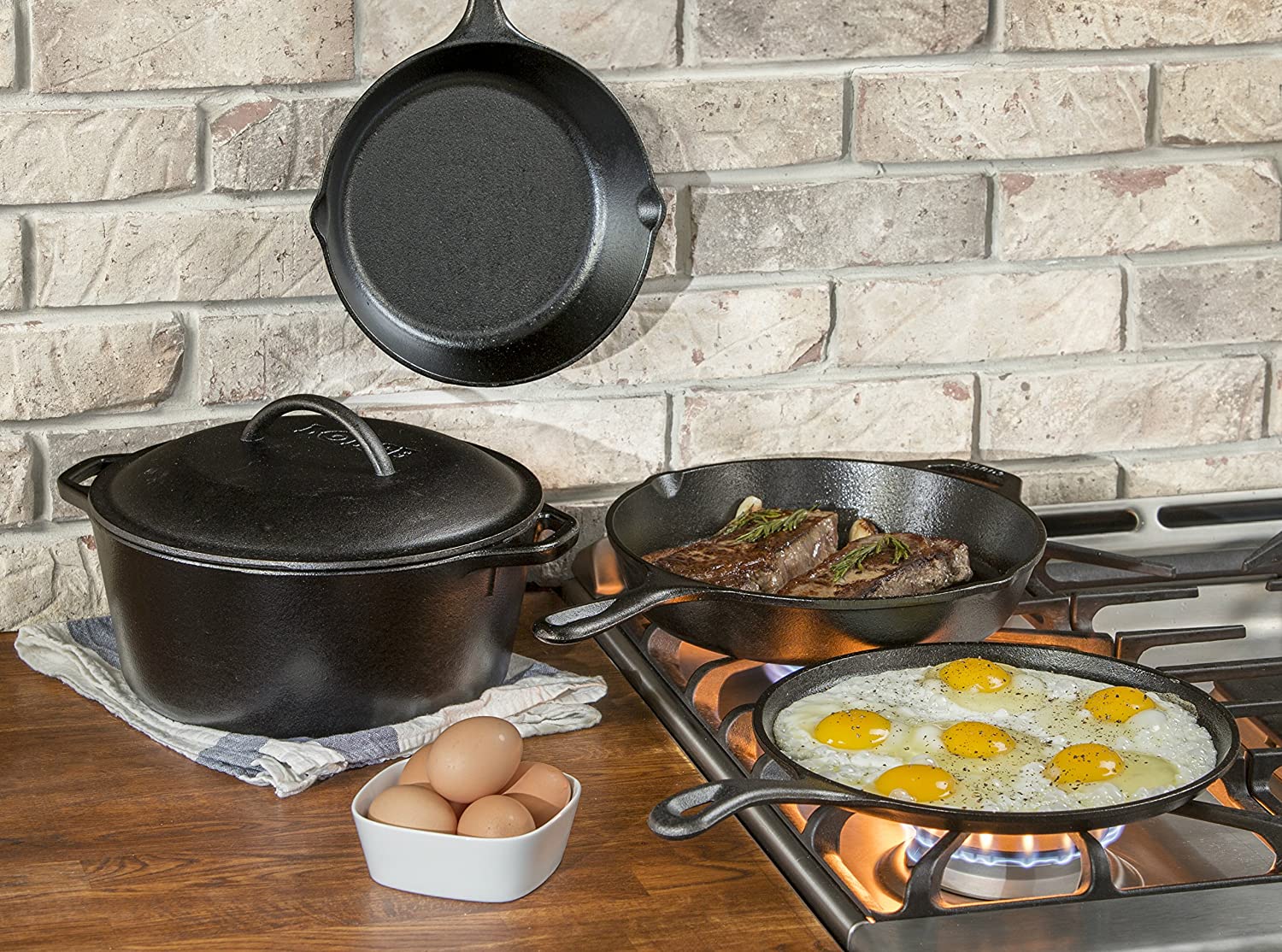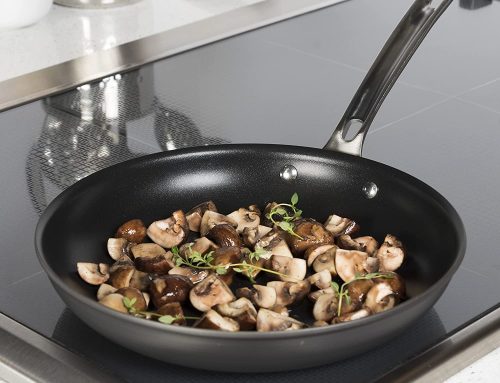Cast iron skillets are a popular kitchen staple due to their durability, versatility, and even heat distribution. However, maintaining a cast iron skillet can be intimidating for some, especially if they are not sure how to clean or care for it properly. Here is a simple guide to help you maintain your cast iron skillet so that it lasts for generations.
- Cleaning: After every use, rinse your skillet with hot water and scrub it with a stiff brush or scraper to remove any food residue. If food is sticking to the skillet, use a little bit of soap, but avoid using too much as it can strip the skillet of its natural seasoning. Rinse the skillet with hot water again, and then dry it thoroughly with a towel.
- Seasoning: Seasoning your cast iron skillet helps to protect it from rust and ensures that food does not stick to it. To season your skillet, heat it on the stove for a few minutes and then apply a thin layer of vegetable oil or melted shortening all over the surface, including the handle and bottom. Wipe off any excess oil with a paper towel and then bake the skillet upside down in the oven at 350°F for 1 hour.
- Storage: Store your cast iron skillet in a dry place to prevent rust. If you stack your skillets, place a paper towel or cloth in between to avoid scratches.
- Avoid harsh chemicals: Avoid using harsh chemicals such as bleach or harsh scouring pads on your cast iron skillet as they can damage the seasoning.
- Re-season regularly: Re-season your cast iron skillet every few months, or whenever you notice the surface becoming dull or food starting to stick.

Should I oil my cast iron after every use?
It is not necessary to oil your cast iron skillet after every use. Over-oiling can lead to a buildup of excess oil and cause the skillet to become sticky. It is recommended to oil your skillet every few uses or when the surface begins to look dull or feel sticky. It is also important to clean the skillet thoroughly and dry it completely before oiling to ensure that the oil is evenly distributed and absorbed.
How do you care for cast iron after use?
Here is a simple guide on how to care for a cast iron skillet after use:
- Cleaning: After each use, rinse the skillet with hot water and use a stiff brush or scraper to remove any food residue. If food is sticking to the skillet, use a small amount of soap, but avoid using too much as it can strip the seasoning. Rinse the skillet with hot water again and dry it completely with a towel.
- Drying: Ensure the skillet is thoroughly dried to prevent rust. You can heat it on the stove for a few minutes or wipe it with a clean cloth to speed up the drying process.
- Oiling: If the skillet looks dull or feels sticky, it may benefit from a light coating of oil. Heat the skillet on the stove for a few minutes and then apply a thin layer of vegetable oil or melted shortening, wiping off any excess with a paper towel.
- Storage: Store your cast iron skillet in a dry place, away from moisture. If you stack your skillets, place a paper towel or cloth in between to prevent scratches.
By following these simple steps, you can keep your cast iron skillet in great condition and ready for your next cooking adventure!
What can ruin a cast-iron skillet?
Several things can ruin a cast-iron skillet:
- Rust: Exposure to moisture can cause rust to form on the surface of the skillet. Ensure the skillet is thoroughly dried after each use and stored in a dry place to prevent rust.
- Harsh chemicals: Using harsh chemicals such as bleach or harsh scouring pads can damage the seasoning of the skillet and cause it to become sticky. Stick to soap and water when cleaning and avoid harsh chemicals.
- Scratches: Scratches can cause the seasoning to become damaged and food to stick. Avoid using metal utensils and rough scrubbing pads when cleaning the skillet, and store it properly to prevent scratches.
- Overheating: Overheating a cast-iron skillet can cause the oil to smoke and break down, resulting in a sticky or rancid surface. Avoid overheating and use a lower heat setting when cooking with cast iron.
- Over-oiling: Over-oiling the skillet can cause a buildup of excess oil, making the surface sticky and difficult to clean. Apply a thin layer of oil only when necessary and wipe off any excess.
By following proper care instructions and avoiding these common pitfalls, you can ensure that your cast-iron skillet lasts for generations.
In conclusion, maintaining a cast iron skillet is simple with just a few basic steps. Proper cleaning, seasoning, storage, and avoiding harsh chemicals will keep your cast iron skillet in great condition for years to come. Happy cooking!








